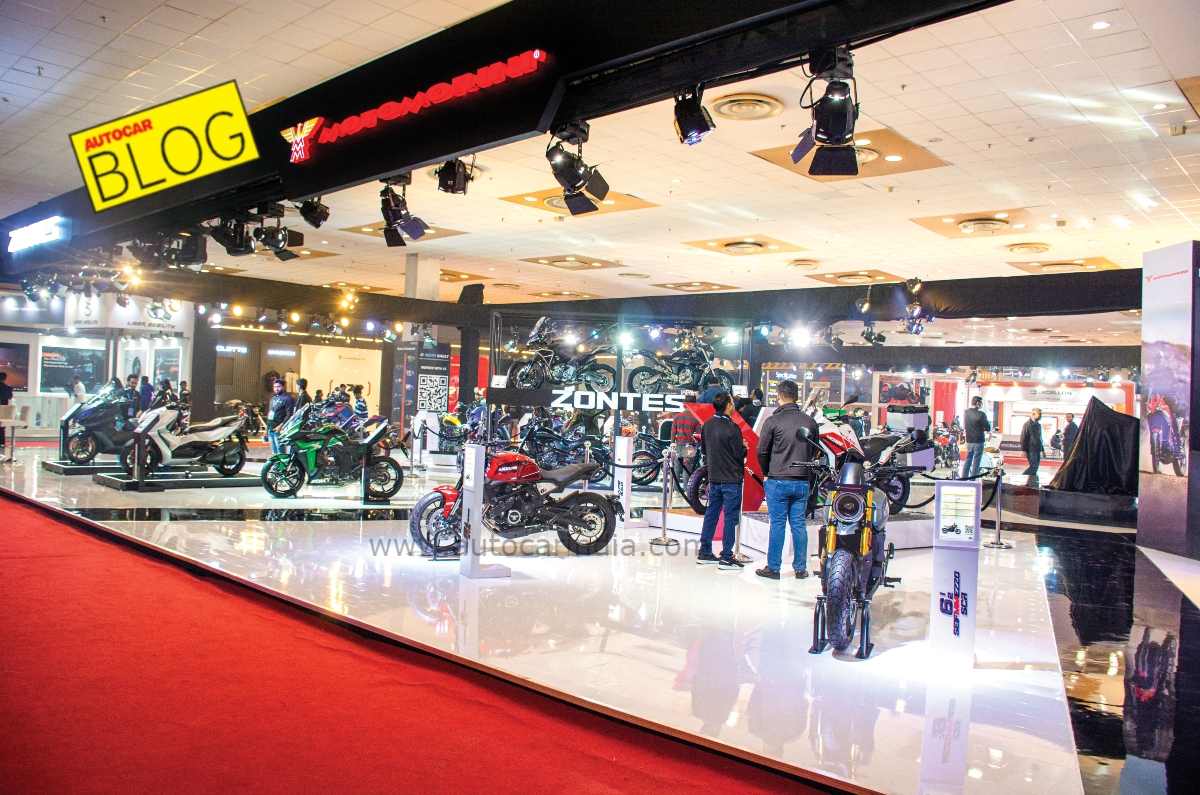
The 2020 Auto Expo was a terribly dull affair for two-wheelers, with Suzuki and Piaggio being the only two mainstream manufacturers who participated. Somehow, 2023 was even worse, with no established two-wheeler OEMs present. This time around, Hyderabad-based Adishwar Auto Ride had the biggest stall, with a massive 46 two-wheelers from eight different Chinese-owned brands on display. These were the only petrol-powered vehicles this year, but even India’s biggest EV brands chose to skip, including the top players – Ola, Hero Electric, Okinawa and Ather – although two of them had their FAME 2 subsidy cancelled in late 2022, so that probably played a role.
Of the relevant EV brands that did show up, it was mostly the typical EV start-up story – plenty of big promises backed by little substance. Ahmedabad-based Matter Energy, which revealed its geared electric motorcycle last November, came to the Expo with two more concept motorcycles. Meanwhile, the original Matter motorcycle doesn’t even have a name, let alone a price tag or a delivery date.
Bengaluru-based Ultraviolette unveiled a more powerful version of the F77 called the F99. The company says that this is a development platform for how far they can push their EV powertrain and that they intend to start a one-make racing series this year. As of writing this, Ultraviolette is also yet to deliver its first motorcycle, but you can read our first ride review of the production-spec motorcycle on page 166.
Pune’s Tork Motors also had a large stall where they showed off their Kratos R with new colours and stickers for 2023, as well as a new Tork Kratos X, which features more power (Tork hasn’t said how much more), a TFT display and an aluminium swingarm. As of the Auto Expo dates, Tork had sold less than 400 motorcycles in total. Still, despite the slow start, I remain optimistic about Tork because they appear to be an engineering-lead company that is grappling with the steep learning curve of becoming a manufacturing company. 2023 will be vital for them.
The most interesting thing at this year’s expo was from Mumbai-based start-up Liger Mobility, which joins the likes of Honda, Yamaha and others in the quest of developing a self-balancing two-wheeler. Liger’s system uses a gyroscope that is controlled via the company’s advanced algorithms and it was freaky watching the electric scooter balance itself while the rider slowly rode forward, backwards and stopped with his feet never leaving the floorboard. Bringing such technology to the masses has huge challenges, which is why we haven’t seen anything from the Japanese giants go on sale yet. Still, it’ll be fascinating to see what this start-up can pull off.
The signs are clear though, auto shows worldwide are losing their appeal in the era of online media and you can’t really blame the OEMs for not wanting to be there. After all, with a much smaller budget, they can organise their own events and have the whole day’s media coverage to themselves rather than lose out in the noise of all the stuff happening at a motorshow. Something needs to dramatically change if the Auto Expo is to attract the two-wheeler OEMs once more.
from Autocar Indiahttps://cdni.autocarindia.com/ExtraImages/20230210035350_Rishaad%20Feb%202023%20blog.jpg



